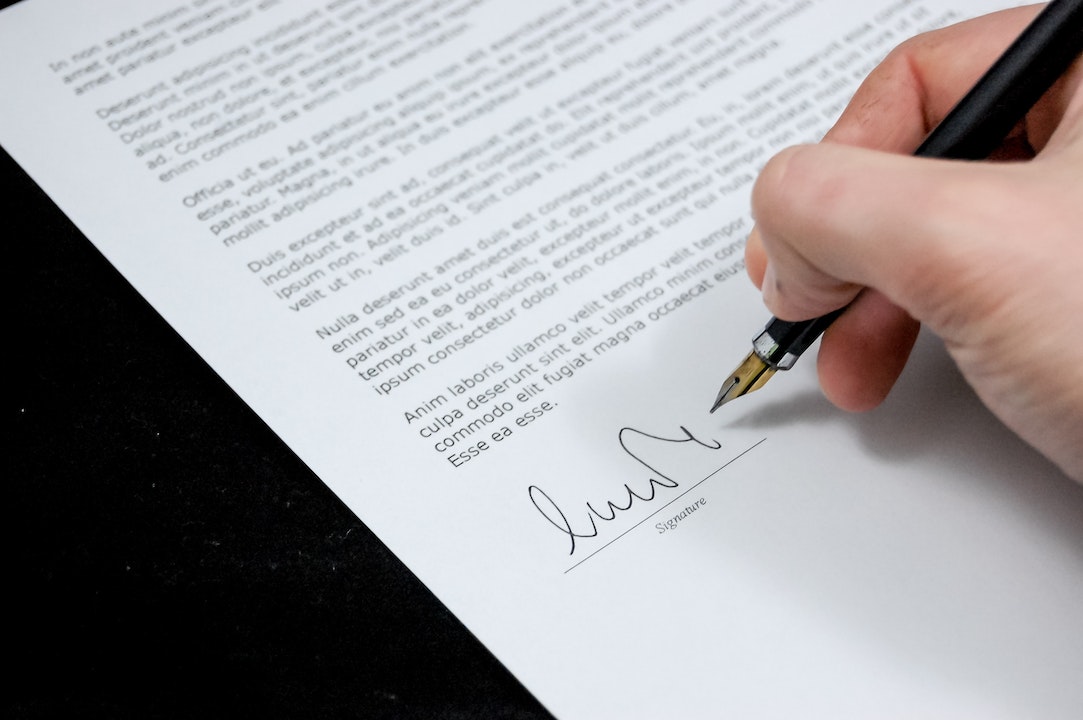Are you gearing up to resign from a role? Regardless of your reason, using good terms can make for a smoother transition and help you also down the track – and your resignation letter is part of leaving on an optimistic note. First and foremost, sit down with your manager or boss for a face-to-face chat to inform them that you’re quitting and give your notice. Then, you’ll need to write a letter to formalize your leaving. The letter should provide the date of your last day of work, so it’s preferred to check your contract to assure you’re giving enough notice. A resignation letter is a formal document, so keep a copy.
While it’s formal, it doesn’t need to belong or be confusing. It’s your opportunity to express that you’re resigning, admit the positives, including grants or experiences you had in your job, and say thanks. It’s always best to keep away from anything negative here. Here’s a step by step resignation letter outline to help you out.
You can also read “Improve Interpersonal Skills! Very Easy” article to improve your ability to communicate with others.
The First Principles of a Resignation Letter
There’s no need to varnish or be creative initially; only state the job you’re resigning from and the date of application. While you possibly shared your reasons for leaving with your boss, you don’t need to state them here, keeping it simple is fine.
Dear [Your Boss’ Name],
Please accept this notice of my resignation from my position as [position title] with [Company Name]. My last day of employment will be [your last day—typically two weeks from the date you give notice].
The Second Principles of a Resignation Letter: The Thank You!
Afterward, it’s always a fine idea to thank your boss for the opportunity, expressing some of the main things you’ve enjoyed and learned on the job. And yes, this is right, even if you’re delighted to be leaving. Remember, you might need these people for a reference eventually, and leaving things on a positive note will leave a lasting impression.
I’m so grateful for the opportunity to work in this position for the past [amount of time you’ve been in the role]. I’ve enjoyed and appreciated the opportunities and support I’ve had to [some of your favorite job responsibilities], and I’ve learned [a few specific things you’ve learned in the company], all of which I will eagerly take with me throughout my career.
The Third Principles of a Resignation Letter: The Hand-off!
In the end, state your eagerness to help out with the transition. You don’t need to go into exact detail (and certainly don’t promise anything you can’t deliver), but a few lines stating that you’ll assure a smooth wrap-up of your responsibilities will show that you’re in the game until the end.
During my last two weeks, I’ll do anything possible to wrap up my responsibilities and train other team members. Please let me know if there’s anything else I can do to help during the transition.
I wish you continued growth, and I hope we will continue our relationship in the future.Sincerely,
[Your Name]
Example Resignation Letters
Like to put this all together and see what it looks like in reality? We’ve provided a couple of letters of resignation samples for you to exercise with.
Example #1
Dear Mr Toliver,
Please accept this letter as formal notification that I am resigning from my position as Journalist with Marketing Media. My last day will be Sunday, March 10.
Thank you very much for the opportunity to work in this job for the past five years. I’ve enjoyed and appreciated the opportunities I’ve had to grow our sales team and pipeline, be a part of making a great product, and work with other colleagues. I’ve learned so much about the digital media and space marketing strategy, which I will definitely take with me throughout my career.
I’ll do everything possible to finish my responsibilities and train other team members during the next two weeks. Please let me know if there’s anything else I can do to help during this transition.
I wish the company continued growth, and I hope we will be in touch in the future.
Sincerely,
Connor Flanders
Example #2
Dear Ms. Lebowitz,
I’m writing this letter as a formal notification that I’ll be leaving my role as Executive Assistant for Larry and Keets Financial Partners on January 15.
I’ve lately received an offer to serve as a Customer Service Representative at a small startup. After careful consideration, I’m thrilled to explore this new path in my career journey.
I appreciate the opportunities I’ve been provided with working on the Sales team for the past six years. It’s been a fantastic experience to work for such a great company and help solve Larry and Keets’ mission to give more significant financial support to older employees.
Please let me know if I can be of any assistance during this transition period. Thank you so much for all your support. I wish you all the best and look forward to keeping in touch with you.
Sincerely,
George Asda
Do you need to write a resignation letter? Here are some of the best resignation letter examples and templates for a variety of circumstances you can use to leave your job, including basic and formal letters, email resignation messages, letters giving two weeks’ notice, letters with a reason for leaving, short notice or no notice letters, personal reasons letters, letters announcing a new job, and retirement letters.
https://www.thebalancecareers.com/best-resignation-letter-examples-2063519
Resignation Letter Notes
Here are some notes you can use to make your resignation letter as impressive as possible:
Keep your letter positive.
No matter the reasons that led you to resign, the accent of this letter should be acceptable—aim to part on good terms and keep your professional network. Make sure not to use your resignation letter to vent frustration.
Send your letter in person.
If possible, you may want to send your resignation letter in-person to your boss. If you resign with a paper copy, state the date at the top of the letter. You may also send an email soon after meeting with your boss. You should use a subject line that’s direct and clear, such as Resignation— [Your Name].
Take networking opportunities into account.
Use language that motivates your manager to continue a professional relationship after leaving the job. For instance, “I’d greatly appreciate the opportunity to keep in touch to continue learning from you and share any industry insights I’ve learned that you might find practical. In the future, please feel free to contact me at [your email address].”
Keep it short, if necessary.
If you leave your job for emotional reasons and prefer not to state optional details, only include your statement of resignation, last day of the employment, and a statement like “I wish the company growth in its future endeavors.”
Be prepared for an immediate departure.
In some cases, your employer may want you to leave on the day you resign. If you are going for a new career that does not start for a few weeks, you won’t be paid for that time. If this situation could apply to you, be careful about what happens when others resign and be prepared accordingly when you are fixing your start date in a new job.
Follow your boss’s instructions for the next steps.
After you claim a formal resignation, your boss may ask you to put together a transition plan, end specific projects or write a farewell note to your colleagues.








